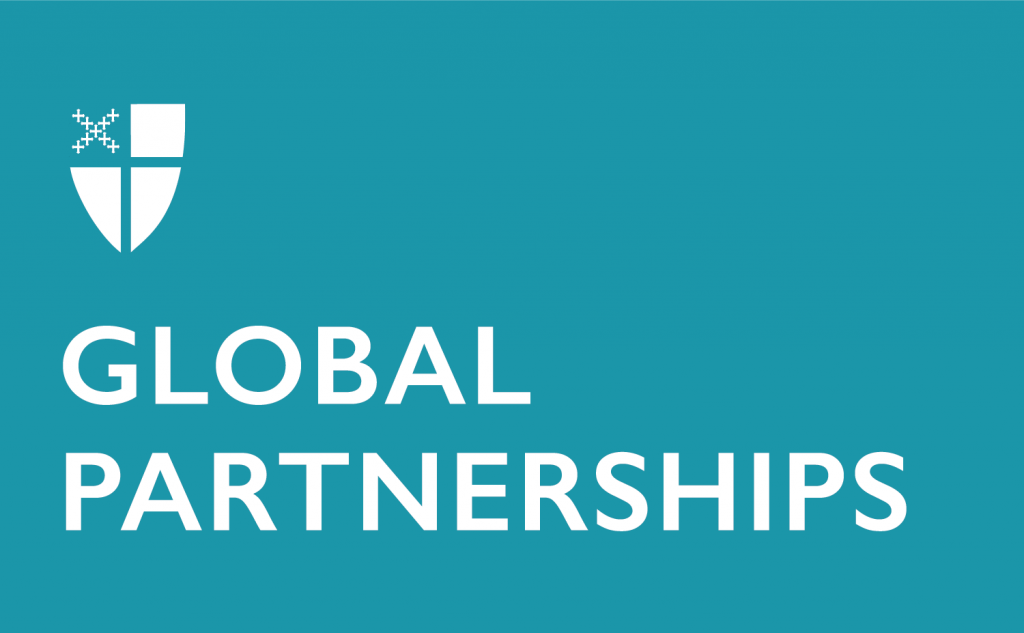Gender Violence: 16 Days of Activism That Last the Entire Year
Today, November 25th, we invite you to join us in prayer and meditation for the International Day for the Elimination of Violence Against Women (http://www.un.org/en/events/endviolenceday), the first of the annual 16 Days of Activism Against Gender Violence, an international campaign that began in 1991 at the Center for Women’s Global Leadership at Rutgers University (http://16dayscwgl.rutgers.edu/). Over the next 16 Days, Global Partnerships will feature a daily contribution from a guest blogger to educate and raise awareness about gender-based violence, share resources and illustrate some of the ways in which The Episcopal Church is responding through its ministries and peace and justice initiatives.
We also invite you to contribute your own resources to the newly created Gender Violence page of The Episcopal Church’s website (www.episcopalchurch.org/page/gender-violence). During the 16 Days, resources will be gathered to respond to General Convention 2012’s Resolution A139 – Gender Violence call to “identify and disseminate resources about gender violence and promote their use by dioceses and parishes”. The resources will be added to the webpage during the 16 Days, and a letter will be sent to all dioceses and parishes pointing to the online resource.
Gender violence, or “gender-based violence” (GBV), is a broader term than “violence against women and girls” and recognizes that violence based on one’s gender can be directed towards men and boys, although this is less common. Thus, it is fitting that November 25th is also White Ribbon Day, an international day for sensitizing men and boys to the significance of gender violence. Gender violence is also an all-too-common experience of those who identify as transgender.
As defined in 1993 in the United Nations Declaration on the Elimination of Violence against Women, gender-based violence is “any act … that results in, or is likely to result in, physical, sexual or psychological harm or suffering to women, including threats of such acts, coercion or arbitrary deprivations of liberty, whether occurring in public or in private life.” These acts take many forms: domestic violence by a partner or spouse, rape (including marital rape), sexual assault, sexual abuse, female genital mutilation/cutting and other traditional practices harmful to women, forced child marriages, assault on the basis of sexual orientation, dowry-related violence, honor killings, infanticide, sexual harassment and intimidation, trafficking in women, forced prostitution, and gender discrimination.
Gender violence is widespread across countries, classes, races, cultures and religions and negatively affects individuals, their families and communities. One in three women experience gender violence during their lives. Men and boys are also subject to various forms gender violence. At its heart is a distortion of the value and place of women and men in society, one that forgets that all of us, regardless of our gender, are loved and cherished by God and made in God’s image.
Restoring that sense that we are all God’s cherished and beloved is at the heart of the 16 Days. The campaign raises awareness about gender violence “to reinforce that eliminating all forms of violence against women is a human rights issue and that the act of perpetrating violence against women is a human rights violation.” They end on December 10th with International Human Rights Day (http://www.un.org/en/events/humanrightsday/). Having these two significant events as book-ends symbolizes the link between violence against women and human rights, stressing the fact that such violence is a violation of human rights. Other important dates also fall during the 16 Days, such as December 1st – World AIDS Day (http://www.un.org/en/events/aidsday/) and December 6th – Anniversary of the Montreal Massacre/ Canadian White Ribbon Day.
The Episcopal Church has long been active in raising consciousness about gender violence and addressing its root causes. This happens through General Convention resolutions, the follow-up of Executive Council and Episcopal Church staff, local, federal and international advocacy, and the ministries of countless individuals, women’s groups, parishes, dioceses and church staff. These ministries include assisting victims through shelters, advocacy, counseling and social services and addressing the beliefs, attitudes and behaviors which are the root causes that lead to this violence.
The 16 Days campaign has spread around the world and is growing in significance within The Episcopal Church and the Anglican Communion. Today, Presiding Bishop Katharine Jefferts Schori will launch The Episcopal Church’s campaign during the midday Eucharist at the Chapel of Christ the Lord at the Episcopal Church Center in New York City. In past years, Anglican Women’s Empowerment, Episcopal Church Women (ECW) and the Episcopal Women’s Caucus have jointly published daily prayers during the 16 Days. This year, the ECW National Board will post a daily prayer which is sent automatically when one signs up here for the free e-Communique newsletter.
The Anglican Communion has stressed the importance of tackling gender-based violence in its Letter to the Churches of the Anglican Communion from the Primates of the Anglican Communion following their Primates’ Meeting in Dublin, Ireland (24-30 January 2011) and the Anglican Consultative Council’s 15th session, with Resolution 15.07 on Gender-Based and Domestic Violence, 2012. The Anglican Communion’s women’s desk published a resource called “Anglicans and the 16 Days” that features various resources and initiatives Communion-wide and will be featured in a future post.
We invite you to join us over the next 16 Days in reflecting on the prevalence of gender violence worldwide, the reason that it persists, and how the Church might best respond to those who suffer from distorted perceptions and acts of violence, be they physical, psychological or spiritual.

